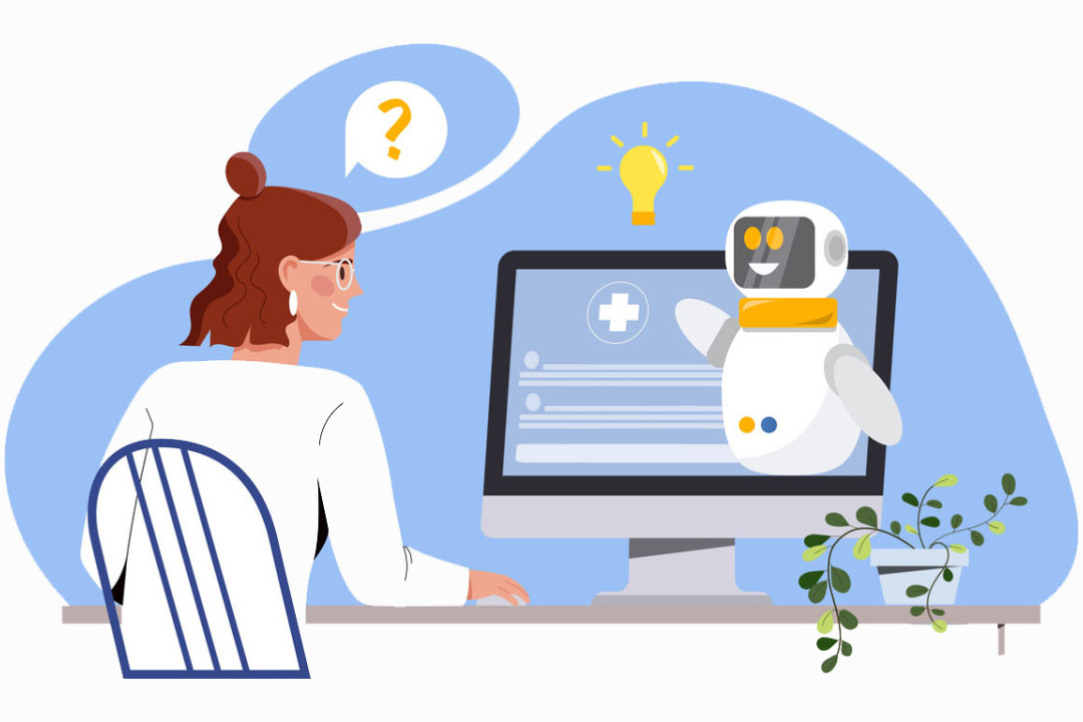A New Tool Designed to Assess AI Ethics in Medicine Developed at HSE University

A team of researchers at the HSE AI Research Centre has created an index to evaluate the ethical standards of artificial intelligence (AI) systems used in medicine. This tool is designed to minimise potential risks and promote safer development and implementation of AI technologies in medical practice.
The rapid expansion of AI technologies across various areas of life, including medicine, has brought about new risks that go beyond information security, economic, or social concerns and extend into ethical challenges as well. Current standards and regulatory frameworks do not adequately address ethical considerations, making it essential to develop a specialised tool for evaluating AI systems from an ethical standpoint.
The team behind the 'Ethical Review in the Field of AI' project at the HSE AI Research Centre carried out comprehensive work in two phases: theoretical and practical. First, the researchers conducted a thorough review of numerous domestic and international documents to identify and define the key principles of professional medical ethics: autonomy, beneficence, justice, non-maleficence, and due care. Subsequently, a qualitative field study using in-depth semi-structured interviews was conducted among medical professionals and AI developers, which allowed the team to refine and actualise the initial principles and to add new ones.
Based on the study results, the researchers developed the Index of AI Systems Ethics in Medicine —a chatbot that allows for 24/7 self-assessment and provides instant feedback from the index developers. The assessment methodology includes a test with closed-ended questions designed to evaluate the awareness of both medical AI developers and AI system operators regarding the ethical risks associated with the development, implementation, and use of AI systems for medical purposes.
The new methodology has been piloted and endorsed by a number of leading IT companies, such as MeDiCase and Globus IT, specialising in the development of AI solutions for medicine. Additionally, it has been approved by the Commission for the Implementation of the AI Ethics Code and the Moscow City Scientific Society of General Practitioners.
'The development of this index is a significant step toward ensuring ethical use of AI in medicine. We hope that the solution we have developed will be valuable to the medical community, which, as our research shows, is concerned about the potential negative ethical consequences of the widespread integration of AI into medical practice,' according to Anastasia Ugleva, Project Head, Professor, Deputy Director of the Centre for Transfer and Management of Socio-Economic Information at HSE University.
The index is expected to be sought after by ethics committees, the forensic medical expert community, and other organisations responsible for evaluating and certifying AI. It will also support the shift from the principle of sole responsibility of a medical professional to a model of shared responsibility among all participants in the process. The introduction of this index will help make AI usage safer and more aligned with high ethical standards.
The methodology guidelines The Index of AI Systems Ethics in Medicine are registered at HSE University as intellectual property (IP), No.8.0176-2023.
See also:
‘HSE’s Industry Ties Are Invaluable’
Pan Zhengwu has spent the last seven years at HSE University—first as a student of the Bachelor’s in Software Engineering and now in the Master’s in System and Software Engineering at the Faculty of Computer Science. In addition to his busy academic schedule, he works as a mobile software engineer at Yandex and is an avid urban photographer. In his interview with the HSE News Service, Zhengwu talks about the challenges he faced when he first moved to Russia, shares his thoughts on ‘collaborating’ with AI, and reveals one of his top spots for taking photos in Moscow.
Scientists Present New Solution to Imbalanced Learning Problem
Specialists at the HSE Faculty of Computer Science and Sber AI Lab have developed a geometric oversampling technique known as Simplicial SMOTE. Tests on various datasets have shown that it significantly improves classification performance. This technique is particularly valuable in scenarios where rare cases are crucial, such as fraud detection or the diagnosis of rare diseases. The study's results are available on ArXiv.org, an open-access archive, and will be presented at the International Conference on Knowledge Discovery and Data Mining (KDD) in summer 2025 in Toronto, Canada.
Hi-Tech Grief: HSE Researchers Explore the Pros and Cons of Digital Commemoration
Researchers at HSE University in Nizhny Novgorod have explored how technological advancements are transforming the ways in which people preserve the memory of the deceased and significant events. Digital technologies enable the creation of virtual memorials, the preservation of personal stories and belongings of the deceased, interaction with their digital footprint, and even the development of interactive avatars based on their online activity. However, these technologies not only evoke nostalgia and provide a sense of relief but can also heighten anxiety and fear, and delay the process of accepting loss. The study has been published in Chelovek (The Human Being).
Scientists Find Out Why Aphasia Patients Lose the Ability to Talk about the Past and Future
An international team of researchers, including scientists from the HSE Centre for Language and Brain, has identified the causes of impairments in expressing grammatical tense in people with aphasia. They discovered that individuals with speech disorders struggle with both forming the concept of time and selecting the correct verb tense. However, which of these processes proves more challenging depends on the speaker's language. The findings have been published in the journal Aphasiology.
Implementation of Principles of Sustainable Development Attracts More Investments
Economists from HSE and RUDN University have analysed issues related to corporate digital transformation processes. The introduction of digital solutions into corporate operations reduces the number of patents in the field of green technologies by 4% and creates additional financial difficulties. However, if a company focuses on sustainable development and increases its rating in environmental, social, and governance performance (ESG), the negative effects decrease. Moreover, when the ESG rating is high, digitalisation can even increase the number of patents by 2%. The article was published in Sustainability.
Russian Scientists Develop New Compound for Treating Aggressive Tumours
A team of Russian researchers has synthesised a novel compound for boron neutron capture therapy (BNCT), a treatment for advanced cancer that uses the boron-10 isotope. The compound exhibits low toxicity, excellent water solubility, and eliminates the need for administering large volumes. Most importantly, the active substance reaches the tumour with minimal impact on healthy tissues. The study was published in the International Journal of Molecular Sciences shortly before World Cancer Day, observed annually on February 4.
Scientists Discover Link Between Brain's Structural Features and Autistic Traits in Children
Scientists have discovered significant structural differences in the brain's pathways, tracts, and thalamus between children with autism and their neurotypical peers, despite finding no functional differences. The most significant alterations were found in the pathways connecting the thalamus—the brain's sensory information processing centre—to the temporal lobe. Moreover, the severity of these alterations positively correlated with the intensity of the child's autistic traits. The study findings have been published in Behavioural Brain Research.
Earnings Inequality Declining in Russia
Earnings inequality in Russia has nearly halved over the past 25 years. The primary factors driving this trend are rising minimum wages, regional economic convergence, and shifts in the returns on education. Since 2019, a new phase of this process has been observed, with inequality continuing to decline but driven by entirely different mechanisms. These are the findings made by Anna Lukyanova, Assistant Professor at the HSE Faculty of Economic Sciences, in her new study. The results have been published in the Journal of the New Economic Association.
Russian Physicists Discover Method to Increase Number of Atoms in Quantum Sensors
Physicists from the Institute of Spectroscopy of the Russian Academy of Sciences and HSE University have successfully trapped rubidium-87 atoms for over four seconds. Their method can help improve the accuracy of quantum sensors, where both the number of trapped atoms and the trapping time are crucial. Such quantum systems are used to study dark matter, refine navigation systems, and aid in mineral exploration. The study findings have been published in the Journal of Experimental and Theoretical Physics Letters.
HSE Scientists Develop Application for Diagnosing Aphasia
Specialists at the HSE Centre for Language and Brain have developed an application for diagnosing language disorders (aphasia), which can result from head injuries, strokes, or other neurological conditions. AutoRAT is the first standardised digital tool in Russia for assessing the presence and severity of language disorders. The application is available on RuStore and can be used on mobile and tablet devices running the Android operating system.



